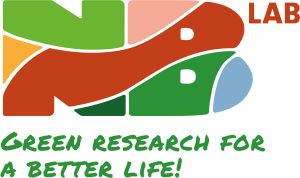
The NB-LAB project will contribute to the modernisation and internationalisation of higher education structures of the partner universities in Peru and Ecuador, by setting up capacities for user-driven applied research and innovation through an interdisciplinary research group of Latin American and European universities, that will contribute to sustainable rural community development under preservation and responsible use of the natural resources in the Amazonian Region.
The NB-LAB project addresses the need of the partner universities in Peru and Ecuador for more applied research and research oriented programs, relevant to the current societal and environmental challenges in the region. With this respect, the project will contribute to the modernisation and internationalisation of higher education structures of the partner universities, by setting up capacities for user-driven applied research and innovation that will contribute to sustainable rural community development under preservation and responsible use of the natural resources in the Amazonian Region. For this purpose, the NB-LAB project partners will establish nature-based living labs at the heart of the Amazon Rainforest. Close connection and collaboration with local communities and the indigenous populations will open new avenues for social and economic development in the region.
The sustainable operation of the labs will be ensured by their direct integration in both educational and research processes in the partner universities. Community service learning has been selected as most suitable educational approach for the transfer of the research results in the society. It is the most appropriate methodology as it is a powerful experiential tool to improve curricular learning, contribute to solve real societal and environmental problems and develop competencies of engaged citizenship.
The NB-Labs will be piloted by the means of an international participatory exchange programme for international students and researchers from multiple disciplines. Two rounds of implementation will test the facilities in the NB-Lab “research village” in Iquitos and the scattered research stations in the rainforest around Tena that will be connected through coordinated research expeditions. By organising staff trainings and exchanges the project will develop the skills and professional performance of the academic to secure the sustainability of the innovation structures.
Project objectives:
- Establish modern lab facilities for experimental learning and research activities situated in the natural habitat of the Amazon Rainforest directly connected to the rural communities and indigenous people from the kokama kukamiria, Iquito and matsès nationalities in Peru and kichwa or shuar nationalities in Ecuador. This objective will be materialised by the establishment of 2 nature-based living labs (NB-Labs) in Tena and Iquitos
- Modernisation of higher education by introducing new innovative methods of teaching and learning in the partner universities (experimental learning in the settings of the living lab user-driven research method and community service learning for direct transfer of co-created research results to rural communities). This objective will be materialised by the development of a suitable pedagogical framework with methodologies, tools and templates by experts from the Faculty of Education in UAM
- Enhance the skills of students in the context of global society and the SDG goals by addressing issues of social and environmental responsibility through international interdisciplinary research and development teams in the scope of mutually recognised student internships (practical semester).
- Foster internationalisation of higher education by creating unified structures for student mobility and staff mobility for research activities,
- Enhance mutual intercultural learning, and learning from the locals, throenhance mutual intercultural learning, and learning from the locals, through the establishment of long-term cooperation structures/networks
- Raise awareness about the problems the people in the Amazon and Andean rural areas face through Capacity Building in the field of higher education
- Strengthen the attractiveness of the HEIs located in rural areas in the Partner countries.
Project results:
- Unified pedagogical framework for research in a living lab settings with direct research transfer through community service learning, including related tools and templates
- Checklist with minimum criteria for quality of research practices and involvement of students in research activities through the NB-Labs
- Training materials for capacity building and development of human resources for the implementation of the new research and educational approaches and tools delivered at 3 training workshops.
- Catalogue and case studies with relevant topic areas for applied research and community service
- 10 research and development plans for international interdisciplinary team projects (5 in Peru and 5 in Ecuador).
- 2 cycles of pilot implementation. Best-practice collection, including reflection and evaluation
- Training recognition agreement between consortium members
- Collaborative stakeholder network
- NB-LAB Brochure.
Project partners
- Hochscule Wismar: University of Applied Sciences, Technology, Business and Design (HSW)
- Ernst-Abbe Hochschule Jena, University of Applied Sciences (FHJ)
- UNIVERSIDAD AUTÓNOMA DE MADRID (UAM)
- National University of the Peruvian Amazon (UNAP)
- UNIVERSIDAD NACIONAL MAYOR DE SAN MARCOS (UNMSM)
- Centro de Investigaciones Tecnológicas, Biomédicas y Medioambientales – CITBM
- Universidad Regional Amazónica – IKIAM
- Universidad Tecnológica Equinoccial – Universidad UTE
Project contributions SDGS’s:
- GOAL 4: Quality Education
- GOAL 5: Gender Equality
- GOAL 8: Decent Work and Economic Growth
- GOAL 9: Industry, Innovation and Infrastructure
- GOAL 13: Climate action
- GOAL 15: Life on land
Email: pilar.aramburuzaba@uam.es
Project start date: 15/01/2021 Project finishing date: 15/07/2023
